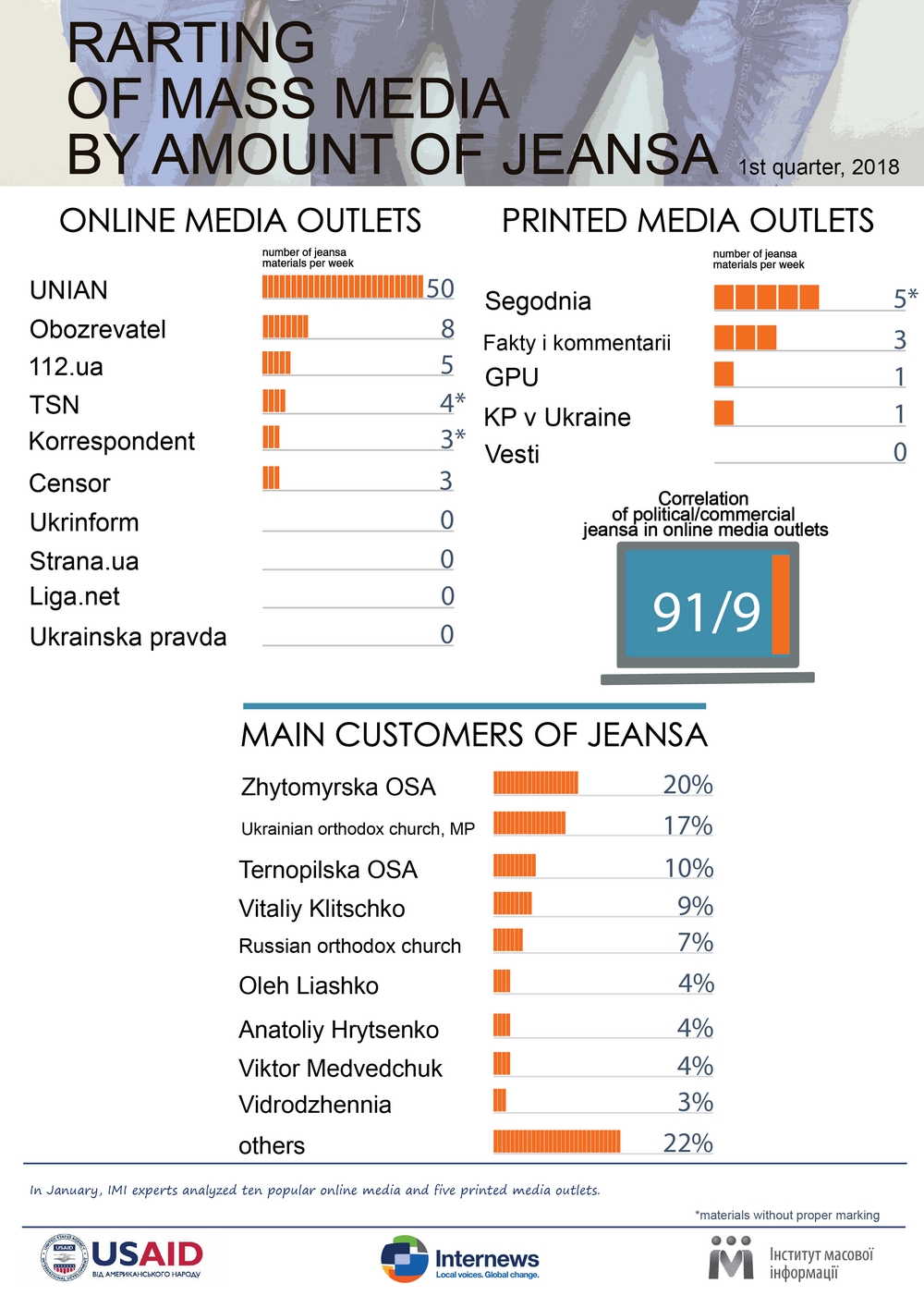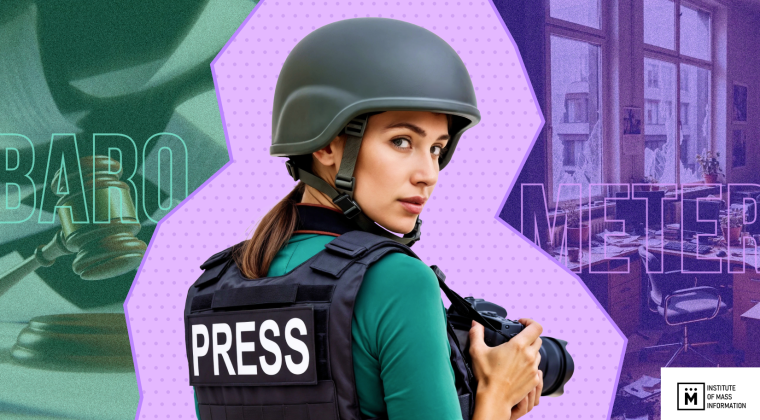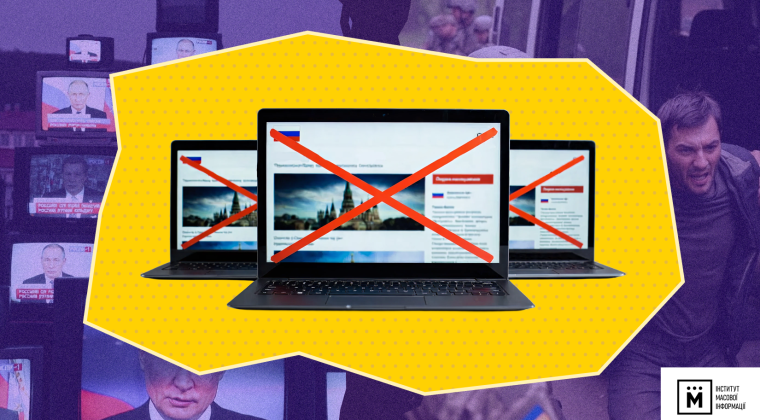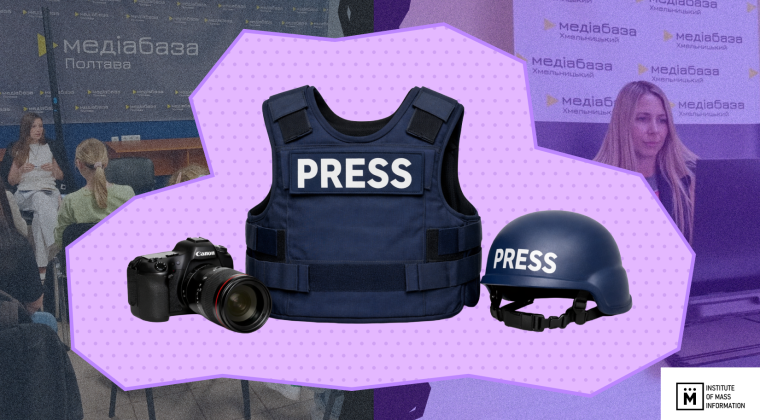
In the first quarter of 2018, the level of jeansa in online media outlets grew by 31%, compared to the last quarter of 2017. As to the level of jeansa in printed media outlets, it remained on approximately the same level.
These are the results of IMI survey for compliance with the standards of journalism and presence of materials that are likely covertly commissioned, in ten popular online media outlets («Ukrainska pravda», «Liga», UNIAN, Ukrinform, «Korrespondent», Channel 112, TSN.ua, «Strana.ua», «Obozrevatel» and «Censor.net») and five printed media outlets («Vesti», «Segodnia», «KP v Ukrainie», «Fakty», «Hazeta po-Ukrainsky»), which is conducted with support of Internews Network.
Of all surveyed media outlets, no jeansa was found in four media outlets – “Ukrainska pravda”, “Liga”, “Strana”, and also, in the newspaper “Vesti”.
The media outlet, which published the most jeansa in the 1st quarter of 2018, was UNIAN. Also, an interesting thing is that UNIAN is far ahead all other surveyed media outlets as to the amount of jeansa (approximately 70% of all materials that are likely covertly commissioned in online media outlet were found on this specific website).
As to the customers who commissioned jeansa, the main «buyers» were Zhytomyrska Oblast State Administration and its governor, Ukrainian Orthodox Church, the Moscow Patriarchy, and Ternopilska Oblast State Administration. Also, among the jeansa beneficiaries there were Vitaliy Klitschko, Viktor Medvedchuk, Anatoliy Hrytsenko, Vadym Rabinovych, Roman Nasirov, Borys Filatov, and others.
The correlation between political and commercial jeansa in the first quarter of 2018 was the following: among the materials with indicators of being commissioned 91% were political, and 9% – were commercial.
Due to the parliamentary and presidential elections drawing closer, IMI experts forecast increase of political commissioned materials. “Traditionally, every time when preparation for elections in Ukraine starts, we observe increase of commissioned materials at least by three times. I am sure that these elections will not be an exception. Of course, prevalence of such materials affects conscious choice of citizens, as it distorts public opinion about politicians and the political situation in the country in general”, IMI expert Olena Holub pointed out.
The monitoring was conducted by the Institute of Mass Information experts, with support of the Internews Network program U-Media in the period of January 22-28, 2018, in ten national level online media outlets, and in six newspapers. The monitoring methodology can be found on IMI website.
The full text of analysis is available at the link.



